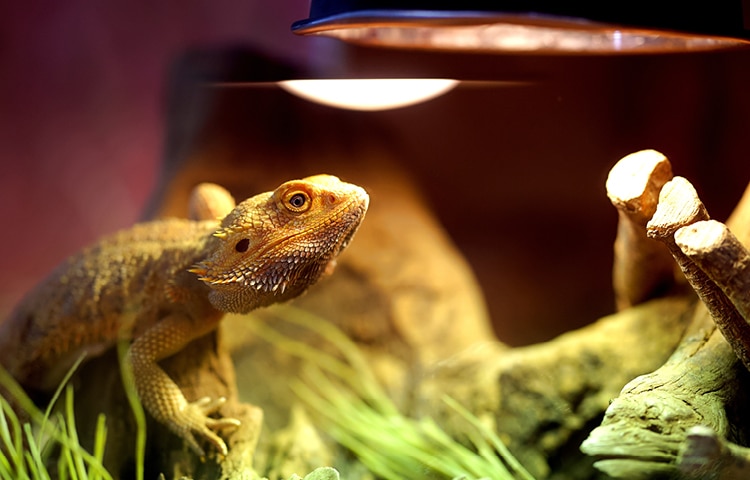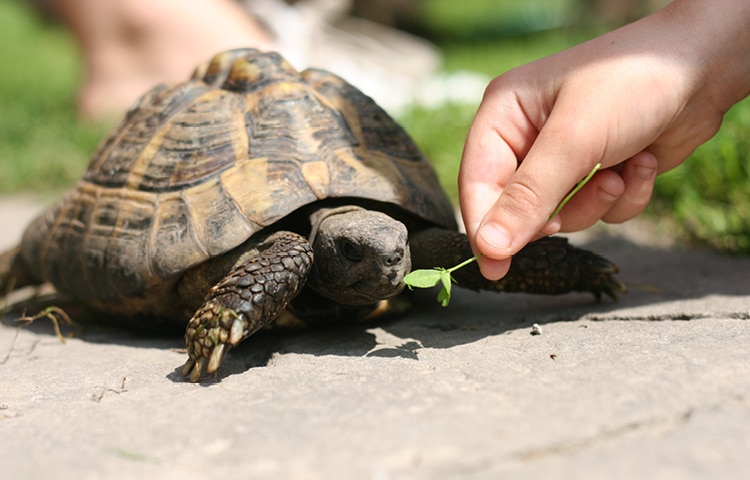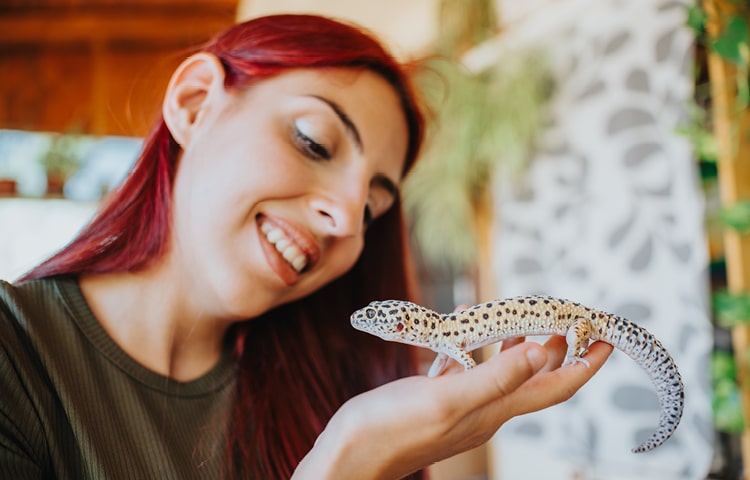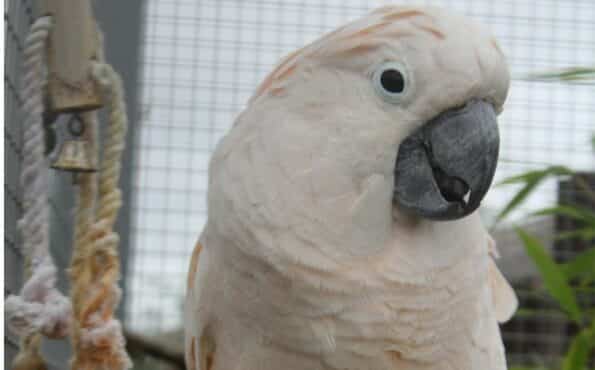From cute baby pythons to wide-eyed marmosets, exotic pets are more popular than ever. But behind the trend is a sad reality: thousands of exotic pets end up in rescue centres every year because owners simply aren’t prepared for what these animals really need, says Jenny Morgan, Director of Gentleshaw Wildlife Centre. The good news? With the right research, planning, and protection, you can make sure your exotic pet stays happy, healthy – and stays with you for life.
Jump to:
Top reasons exotic pets get rehomed
Which exotic pets are rehomed most?
How to avoid rehoming: your quick checklist
Protect your exotic pet – and your savings!
About Gentleshaw Wildlife Centre
Top reasons exotic pets get rehomed
1. Aggression
Many exotic pets keep their wild instincts, no matter how tame they seem at first.
“A common misconception is that captive bred, or hand-reared exotic pets will automatically be tame and lose their wild instincts,” explains Jenny. “When stressed or mishandled, some species can become aggressive, and owners find they can’t cope.”

2. Unexpected size
People often underestimate how big an animal will get – especially snakes and tortoises.
“Large snakes come in because their owners have not realised how large they can, and will, grow,” shares Jenny. “Once the cute baby python outgrows its tank, many owners simply aren’t prepared or experienced enough to handle a mature snake.”
3. Specialist needs
Exotic pets often need complex habitats, specialist diets, and exotic vets – and not every vet is qualified to treat them.
“A lack of research before taking on the animal leads to owners finding themselves unable to deal with an animal’s needs,” Jenny explains.
Without proper planning, care can quickly become overwhelming… and the animal suffers the consequences.

4. High costs
From custom enclosures to live food and specialist vet care, costs can add up fast. Many people don’t factor in the ongoing expense when they buy an exotic pet.
Protect yourself from surprise vet bills with exotic pet insurance – it can make all the difference when you need it most.
5. Loss of interest
Sadly, many exotic animals end up unwanted simply because owners are unaware of the animal’s lifespan and people lose interest. Some species, like tortoises and parrots, can live for decades – far longer than many owners expect.
Which exotic pets are rehomed most?
Some animals come through rescues again and again – often for reasons first-time owners don’t expect:
- Large snakes (like Burmese pythons): Many owners don’t realise just how big these snakes can grow. A baby python may seem manageable, but a fully grown Burmese python can reach over five metres and needs a secure, purpose-built enclosure.
- Barn owls & Harris hawks: These striking birds of prey often surprise owners with how noisy they are – especially at night. Barn owls can screech loudly, while Harris hawks need space to fly and hunt. They are not pets that can live quietly in a shed or small aviary, they’re wild animals.
- Marmoset monkeys: Marmosets may look cute, but they’re very complex to care for. They need enriched environments, specialist diets, and aren’t keen on being handled too much. They’re also messy and smelly – a surprise for many new owners who haven’t done thorough research.
- Tortoises: Many people choose tortoises thinking they’re low maintenance, but many species can live 50 years or more. They need lots of outdoor space, specialist heating and UV lighting, and a carefully balanced diet. Sadly, owners often lose interest long before the tortoise’s natural lifespan is over.

How to avoid rehoming: your quick checklist
Before you bring any exotic pet home, ask yourself:
- Can you house it for its entire natural lifespan?
- Can you afford a specialist exotic vet – and do you have one lined up?
- Can you reliably source its correct diet?
- Is your home suitable for its noise, mess, and safety needs?
- What’s your plan B if you can’t keep it later on? Never assume a rescue centre will always have space. Plan ahead to be a responsible owner.
Why rehome instead of buy?
When you choose to rehome an exotic pet instead of buying from a breeder or pet shop, you’re giving an animal a second chance at a safe, happy life. You’re also helping to break the cycle of impulse buying and neglect that leaves so many exotics needing rescue in the first place.

Reputable rescues like Gentleshaw Wildlife Centre don’t just hand over animals to anyone – they work hard to make sure each pet finds the right home for life.
They carefully vet potential owners by checking:
- Experience: You’ll be asked about your knowledge of the species to make sure you understand what’s involved.
- Vet access: You’ll need to show you already have a qualified exotic vet lined up as not every vet can treat exotic pets.
- Proper housing: Good rescues often ask for enclosure diagrams and photos, so they know exactly where and how the animal will live.
By choosing to rehome responsibly, you help an animal who may already have been abandoned once find stability and care for the rest of their life.
Protect your exotic pet – and your savings!
Caring for an exotic pet can be costly, especially if you need specialist vet care. Exotic pet insurance can help cover unexpected vet bills, giving you peace of mind that you can always provide the best care for your unusual companion.
About Gentleshaw Wildlife Centre
Gentleshaw Wildlife Centre, a registered charity, is a small sanctuary for exotic animals and birds of prey. Based in Staffordshire, the centre is home to over 30 species of birds of prey, primates, reptiles, invertebrates, raccoons, wildcats and more.
Gentleshaw offers permanent homes to unwanted or mistreated exotics and captive-bred birds of prey and provides temporary foster care while forever homes are found.
Visit the Gentleshaw Wildlife Centre website to find out more.

